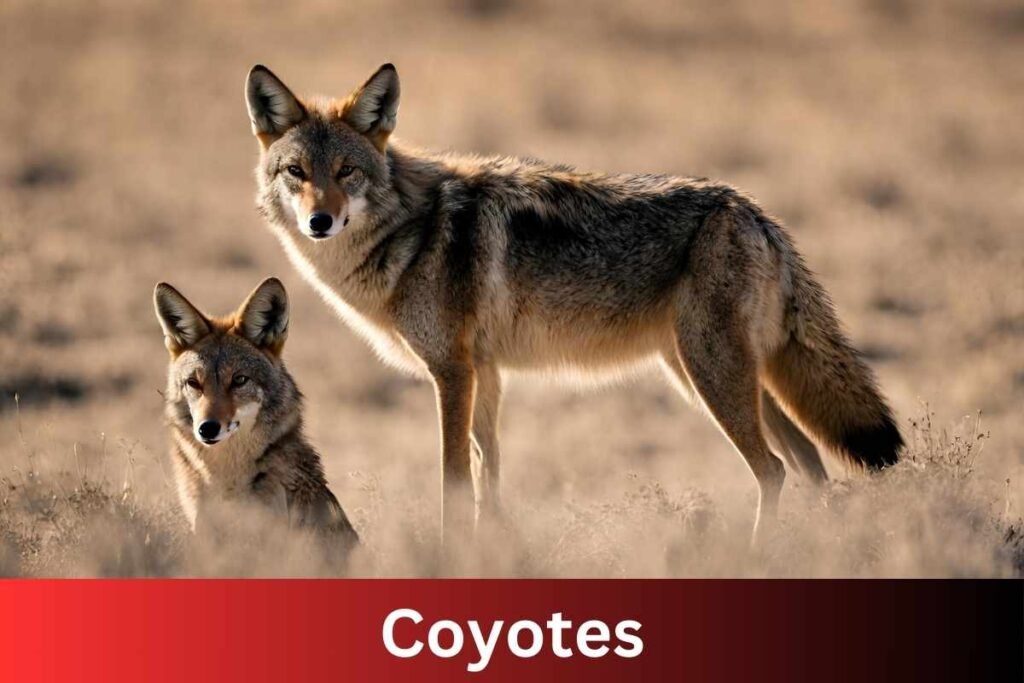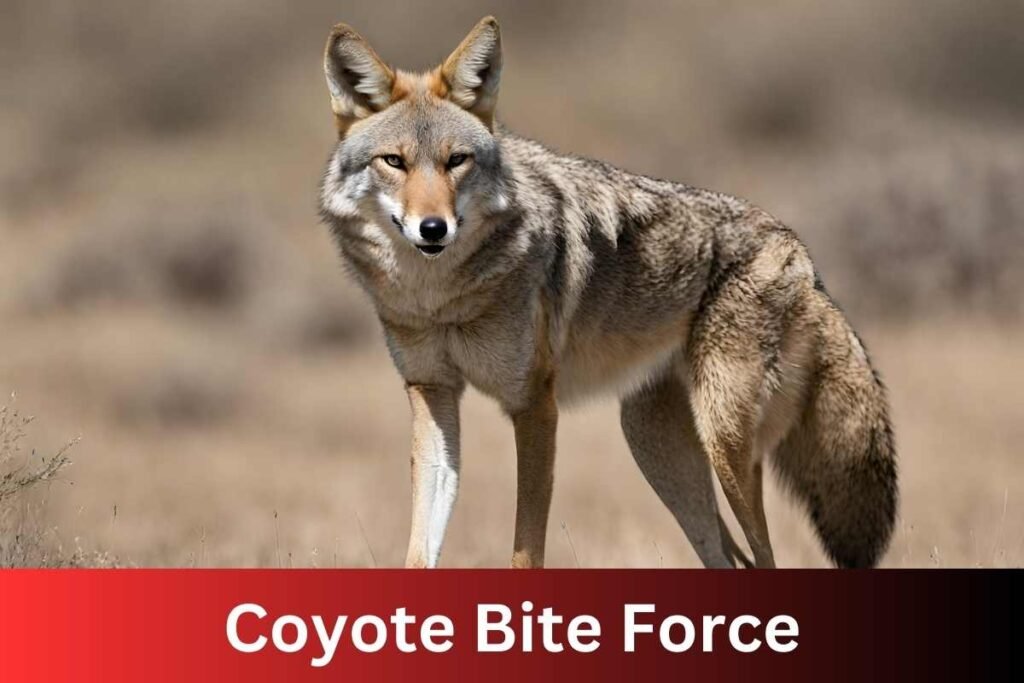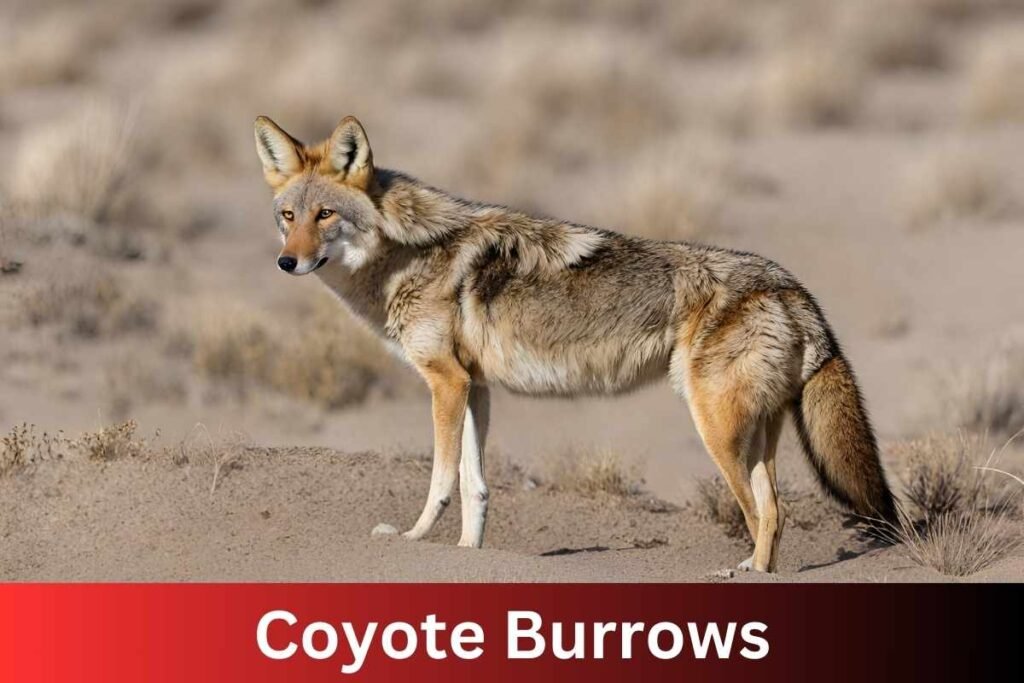Table of Contents
Coyotes, those elusive creatures of the wild, often evoke curiosity about their behaviour, diet, and even their meat.
In this comprehensive guide, we delve into the intriguing topic of whether coyotes are edible and what their diet consists of.
From the taste of coyote meat to the ethical considerations of consuming it, we cover all you need to know about this fascinating subject.
What Does Coyote Taste Like?
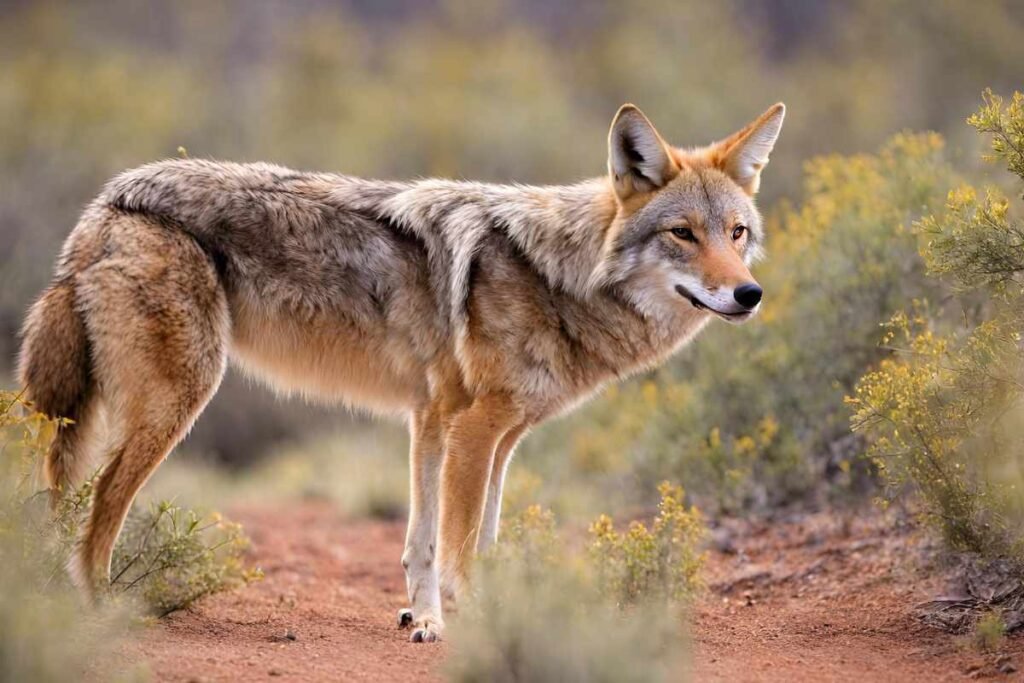
Coyote meat is often described as having a strong, gamey flavour similar to other wild game meats like venison or rabbit.
The taste can vary depending on factors such as the age of the animal, its diet, and how it’s prepared. Some people liken it to lean beef with a hint of tanginess, while others find it too intense for their palate.
Ultimately, the taste of coyote meat is subjective and may not appeal to everyone.
What Do Wild Coyotes Eat?
As opportunistic omnivores, coyote consume a wide variety of foods, including both plant and animal debris.
Their primary food sources consist of small mammals like rabbits, rodents, and squirrels. Additionally, they consume birds, insects, reptiles, and amphibians.
Coyotes are also known to scavenge carrion and feed on fruits, berries, and other vegetation, especially during times of scarcity.
Are Coyotes Good to Eat?
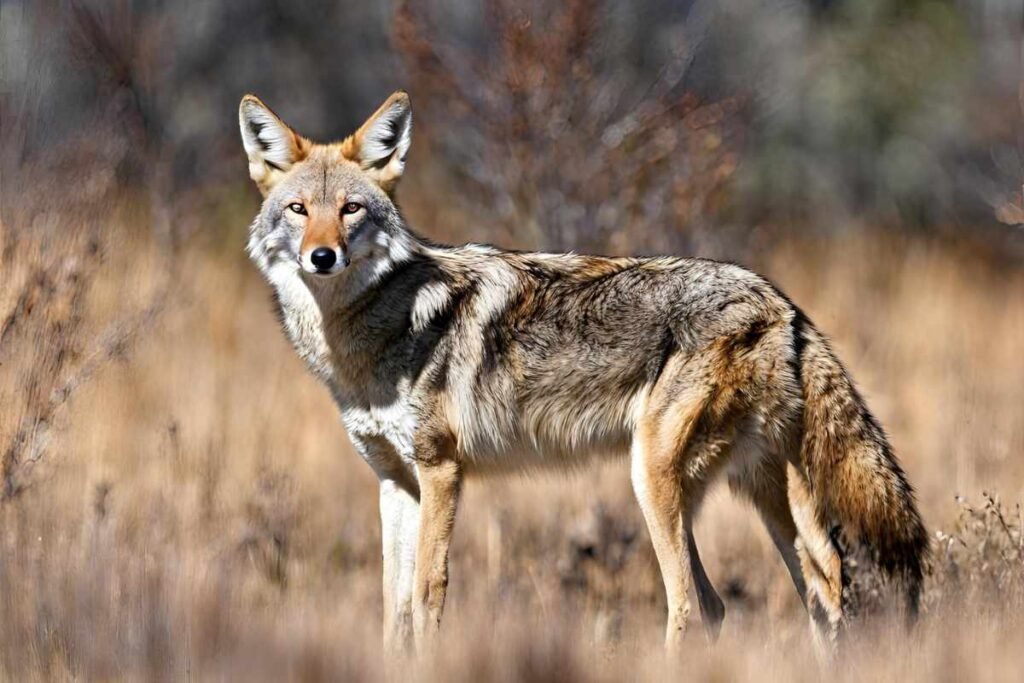
While coyote meat is technically edible, there are several factors to consider before consuming it.
Firstly, coyotes are wild animals that may carry diseases or parasites, making their meat potentially unsafe for human consumption.
Additionally, ethical concerns arise regarding the hunting and killing of coyote for food, as they play an important role in the ecosystem as apex predators.
Therefore, while it may be possible to eat coyote meat, it’s not recommended due to health risks and ethical considerations.
Coyote Diet Facts
- Coyotes exhibit opportunistic feeding behaviour, adapting their diet based on seasonal availability and environmental conditions.
- Their diet can vary significantly depending on geographic location, habitat type, and human influence.
- In urban areas, coyote may rely more heavily on human-related food sources such as garbage, pet food, and domestic animals like cats.
Do People Eat Coyote?
While there are instances of people consuming coyote meat, it’s not a common practice and is generally discouraged.
In some cultures, particularly indigenous communities, coyotes may be hunted for food or used in traditional ceremonies.
However, in modern society, the consumption of coyote meat is rare and often met with scepticism due to concerns about safety and ethics.
Is Coyote Meat Edible?
Technically, coyote meat is edible and can be consumed under certain conditions.
However, due to the potential health risks associated with consuming wild game meat, experts advise against eating coyotes or other predatory animals.
Factors such as disease transmission, parasites, and chemical contaminants pose significant concerns for human health.
Health Risks Associated with Consuming Coyote Meat
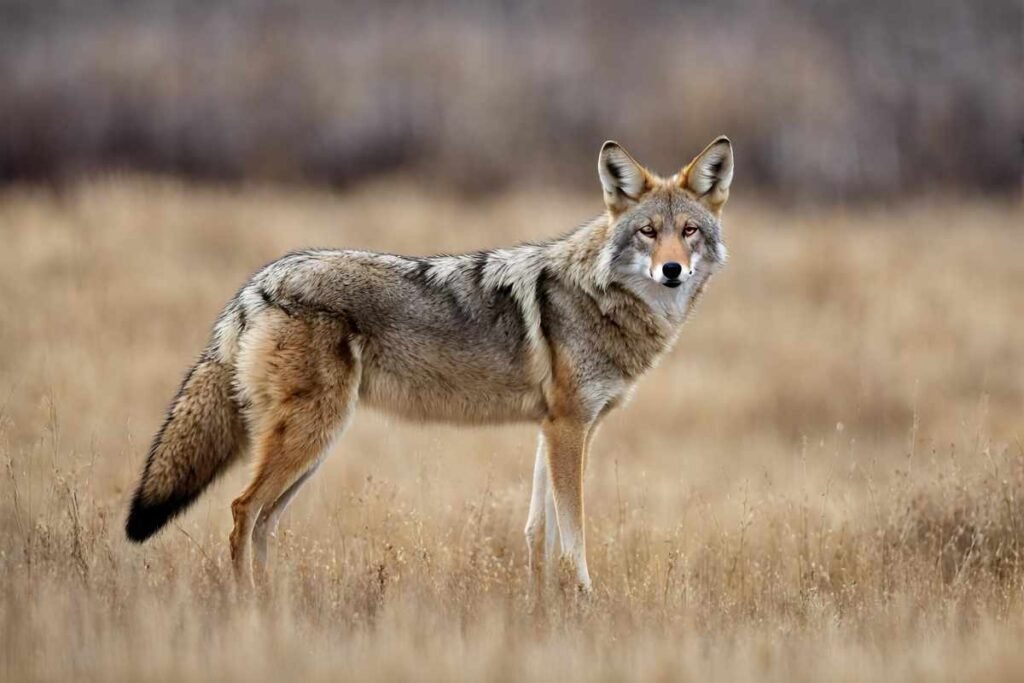
Consuming coyote meat poses potential health risks to humans due to the presence of diseases, parasites, and chemical contaminants.
Coyotes may carry pathogens such as rabies, which can be transmitted to humans through contact with infected tissues or fluids.
Additionally, parasites like tapeworms and roundworms found in coyote can cause serious illnesses if ingested.
Furthermore, coyote may be exposed to environmental pollutants or toxins through their diet, making their meat potentially unsafe for human consumption.
Ethical Considerations of Eating Coyote Meat
Beyond health concerns, there are ethical considerations surrounding the consumption of coyote meat.
Coyotes are sentient beings capable of experiencing pain and suffering, and their indiscriminate killing for food may raise moral objections.
Additionally, coyote play vital roles in ecosystems as apex predators, contributing to ecological balance and biodiversity.
Consuming coyote meat may conflict with principles of conservation and animal welfare, leading many to advocate for alternatives to hunting or consuming wild animals for sustenance.
Conclusion
In conclusion, while coyote meat is edible, it’s not recommended for consumption due to health risks, ethical considerations, and cultural attitudes.
Coyotes play a vital role in maintaining ecological balance, and hunting them for food may have unintended consequences for ecosystems and wildlife populations.
Instead of viewing coyotes as a potential food source, it’s essential to respect their role in nature and coexist with these remarkable creatures in harmony.
FAQs
Can you eat coyote?
While it’s technically possible to eat coyote meat, it’s not recommended due to potential health risks and ethical considerations. Coyote may carry diseases or parasites that can be harmful to humans, and consuming their meat may also raise ethical concerns about hunting and killing wild animals.
What does coyote taste like?
Coyote meat is often described as having a strong, gamey flavour similar to other wild game meats like venison or rabbit. The taste can vary depending on factors such as the age of the animal, its diet, and how it’s prepared.
What do wild coyotes eat?
Coyotes are opportunistic omnivores with a varied diet that includes small mammals like rabbits, rodents, and squirrels, as well as birds, insects, reptiles, amphibians, carrion, and vegetation such as fruits and berries.
Are coyotes good to eat?
While some cultures may consume coyote meat for various reasons, including traditional practices or food scarcity, in modern society, it’s generally not considered a suitable food source. Health risks associated with consuming wild game meat, along with ethical concerns about hunting and killing coyotes, discourage the consumption of coyotes as food.
Is coyote meat edible?
Coyote meat is technically edible, but it may not be safe for consumption due to the potential presence of diseases, parasites, or chemical contaminants. Experts advise against eating coyotes or other predatory animals to minimise health risks.
Do people eat coyotes?
While there are instances of people consuming coyote meat, particularly in indigenous communities or in survival situations, it’s not a common practice in modern society. The consumption of coyote meat is often met with scepticism and is generally discouraged due to health and ethical concerns.
What are some coyote diet facts?
Coyotes exhibit opportunistic feeding behaviour, adapting their diet based on seasonal availability and environmental conditions. Their diet can vary significantly depending on factors such as geographic location, habitat type, and human influence. In urban areas, coyotes may rely more heavily on human-related food sources such as garbage, pet food, and domestic animals like cats.
